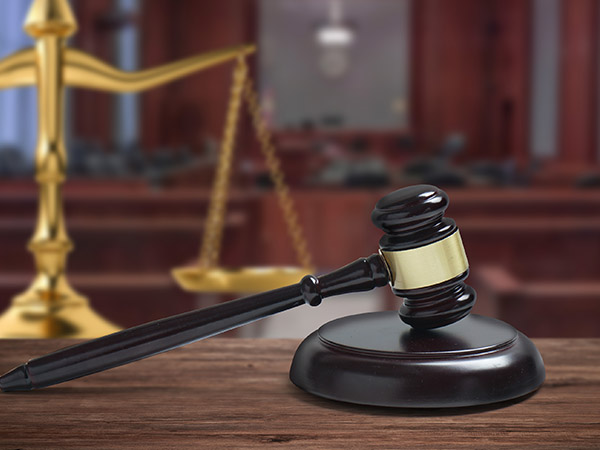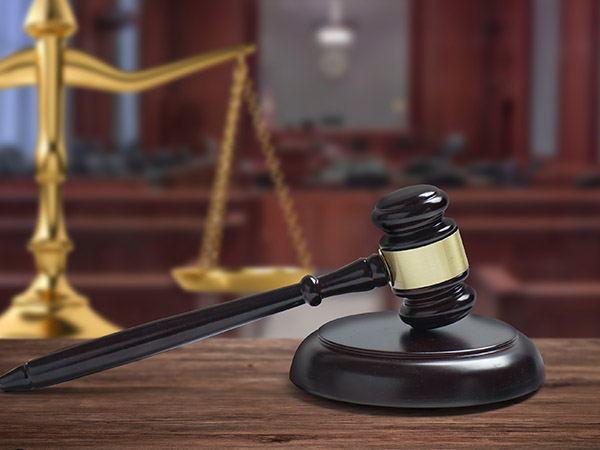Going to a New Journey and Writing a New Chapter ——"Two Sessions" leading the new era of China's intellectual property
On March 15, 2019, the Second Session of the 13th National People's Congress closed, and the "Two Sessions" that attracted much attention also came to an end. This "Two Sessions" conveyed a strong signal: China's protection of intellectual property rights (IPRs) is constantly strengthening.
Innovation is the first motivation to lead development, therefore, protection on the IPR is the basic measure to motivate innovation. Since the 18th CPC National Congress, the people' s court deeply implement the strategies on national IPRs and innovation driven development; proactively adapt to the new trend, new change and the new normal of economic development, based on strict protection, deep reforming, system perfection and regulation unification; and keep promoting modernization of the judgement system and judgement capabilities, which gained a lot of achievements on striving for guarding established achievements and serving for a innovative country.
Xi Jinping
President of the People's Republic of China
Protection on property rights, especially intellectual property (IP) is a main point for providing a favorable business environment. We must perfect related legal regulations on IP protection, raise both quality and efficiency on IP censorship, and accelerate the system construction on emerging areas and type of operation.
Top Design guiding directions for intellectual property rights judicial protection
"Nationwide IPRs system of court will be established basically in 2020, when the IPRs affairs of the people's court will face new opportunities and development."
"Until the middle period of the 21 Century, the people's court will implement thoroughly the modernization of IPRs judicial system and judicial capabilities, and become one of the demonstrators and leaders on international IPRs judicial protection."
The outlook which was delivered by Tao Kaiyuan, vice president of the Supreme People's Court (SPC), on the 4th National Conference on IP Court of Justice on July 9, 2018 is quite inspiring, so the present and the future of China's IPRs judicial protection are getting more and more attractions.
Back to the 80s and 90s of the 20 Century, the protection on IPRs was just a new topic, when the word entry "Intellectual Property Rights" have not collected in China's law dictionary.
Only 30 years passed, there have been a top-down change on related concepts, institutions a n d practice about IPRs protection in China : a more specified IPRs legal system has been established, a number of domestic laws and special statutes have been made and more important international treaties on IPRs have been added. During the period, the binary system of Chinese characteristics in which the judicial protection parallel with the administrative protection has played a very important role and the justice-led government has already established and kept perfecting. These historical achievements benefited a lot from the high altitude strategies of Top Design.
On June 2008, China punished the National Intellectual Property Rights Strategy in which the government decided on implementing national intellectual property rights strategy and emphasized on "strengthening judicial protection mechanism" and "activating the main-leading function" of judicial protection on IPRs.
On July 2016, the Supreme People's Court established "justice domination, strict protection, classification management and moderate comparison" as the basic policy of judicial protection on intellectual property rights.
On April 2017, the Supreme People's Court firstly published Outline of the Judicial.
Protection of Intellectual Property in China (2016-2020), in which "establishing an intellectual property court system, formulating intellectual property-specific evidentiary rules which include the burden of proof by the parties, evolving an intellectual property damages system underpinned by scientific rigour and rationality" and 5 more targets were made.
On February 2018, the View on Several Problems of strengthening the area of intellectual property rights trial reform and innovation was published, which is the first programmatic document targeting on related reform innovations on specific judgement areas.
Under the regulation and direction of the Top Design, the guarding innovations of IPRs judgement are going full blast and gaining a more prospective future.
The IPRs justice system developing to maturity
"Establishing a national appeal hearing mechanism on IPR cases is the dream of generations of IPRs practitioners," delivered Luo Dongchuan, vice president of the Supreme People's Court and the chief judge of the IP Court on the Press Conference held by China's State Council Information Office.
Three days after the speech, the IP Court of the Supreme People's Court was established which occupied a significant status in China's IPR system of court construction.
In retrospect, since the 18th CPC National Congress, the People's Court has developed its border and headed forward, made a number of rapid and clear achievements in the IPR justice system and mechanism.
At the end of 2014, the IP Courts were established and has worked creatively in Beijing, Shanghai and Guangzhou in succession, which led the initial stage o f exploration on the specializing IPR justice system of Chinese characteristics.
Since 2017, the IP Courts have been established in 18 key cities containing Nanjing, Suzhou, Wuhan, Chengdu, Hangzhou, Ningbo, Hefei, Fuzhou, Jinan, Qingdao, Shenzhen, Tianjin, Zhengzhou, Changsha, Xi'an, Nanchang, Changchun and Lanzhou in order, centralizing advantageous judgement resources with cross-region jurisdictions on patents and other technical cases. In this way, the arrangement of jurisdictions on the IPR cases continues to optimize.
On January 1, 2019, the Intellectual Property Court of the Supreme People's Court was established and put into work, which meant a great institutional innovation in strictly protecting the IPR, serving for the innovation driven development strategy and building a global business environment.
With the perfection of the IPR justice organization system in the areas of professionalization, integration, specialization and scientification, the institutional problems which restricted scientific innovations such as the discrepancy on the IPR judgement criteria and the complex program on litigation was solved fundamentally.
The trend faced by the IPR justice practitioners will be not so optimistic, with the growing number of IPR cases, the emergence of hard cases on different types and the rising difficulty on hearing cases.
Under these circumstances, people's court grasps the nettle and plans on multiple levels. It comprehensively plays the main leading role in judicial protections on the IPR, which has heard a lot of IPR cases fairly and efficiently based on the civil justice , developing the administrative justice and the criminal justice in parallel.
In the year of 2018, the number of the IPR cases including the first instances, the second instances and the applications for retrial received by the people's court has reached 334,951 with 319,651 finalized (including the previous), and risen by 41.19% and 41.64% respectively compared to those of the year of 2017.
Merely based on the data collected by the Beijing Intellectual Property Court, from November 6, 2014, when the court was established, to the bottom of October, 2018, the number of the cases on the IPR accepted reached 50,739, with the growth rate breaking 30% per year.
Chinese people's court has become the court that judged the most IPR cases, especially on the patents in the world.
And so, China has also become the "Best Destination" for solving international IPRs disputes.
On April 26, 2018, the World Intellectual Property Day, the Supreme People's Court opened a public hearing on the trademark administrative dispute case between Christian Dior SE and t h e Trademark Review and Adjudication Board of the State Administration of Industry and Commerce, providing timely and effective judicial remedies for international trademark applicants and protecting legal rights of foreign litigants comprehensively.
China's courts have accepted a number of IPR cases including the serial cases on the administrative trademark dispute between Qiaodan Sports and Air Jordan, the patent infringement dispute cases and the anti-monopoly cases on abuse of market ascendancy between Qualcomm Inc. and Apple Inc. and the patent rights infringement dispute cases of GPNE Corp. v. Apple Inc..
"The greatly influential IPR cases accepted by the people's court not only transcended in pursuit of case justice but also raised the public credibility on China's IPR judicial protection, defending the enthusiasm to motivate the high quality development of China's intellectual economics led by the IPR practitioners at home and aboard." commented by professor Liu Junhai from Renmin University of China Law School.
Zhao Wen
Member o f the CPPCC Standing Committee, Vice Chairman of the Central Committee of Jiusan Society, and Vice Chairman of the Shanghai Political Consultative Conference
Call for the promotion of the systematization of intellectual property law
Zhao Wen, member of the CPPCC Standing Committee , vice chairman of the Central Committee of Jiusan Society, and vice chairman of the Shanghai Political Consultative Conference, has submitted proposals about reforming the administrative system of IP for five consecutive years, before the reform was preliminarily implemented as part of the institutional reform of the State Council. This year, she turns her attention to legislative efforts in improving legal system of IP, while focusing on the organizational system of intellectual property court at the judicial level.
In Zhao Wen's opinion, it is necessary for China, against the backdrop mentioned above, to keep improving its legal system of IP and increasing the protection of IP . At the same time, the competition for the dominance in international economic and trade rules with IP being a major part, becomes more intense. Therefore, international governance system of IP is confronted with both development and changes ."Improving the IP legal system can indeed help enhance China's voice and credibility in the international governance system of IP."
Shen Changyu
Director of the National Intellectual Property Administration (CNIPA)
Royalties paid for the use of foreign intellectual property exceeded 230 billion Yuan in 2018
The 3rd Plenary Session of the 2nd Session of the 13th National People's Congress was held in the Great Hall of the People on March 12, Beijing. Shen Changyu, director of the National Intellectual Property Administration (CNIPA), was interviewed by reporters at the "ministers' passage."
Shen pointed out that IPRs are closely related to economic growth.
First, CNIPA will ensure patent protection. Second, CNIPA will ensure trademark protection. Third, CNIPA will promote the work of geographical indications. Fourth, CNIPA will promote cooperation on IPRs, technological exchanges and trade between Chinese and foreign enterprises.
He said that the CNIPA will follow the spirit of President Xi Jinping's important instructions and implement decisions of the CPC Central Committee and the State Council, and further focus on the following aspects: First, it will strengthen the overall design of IP protection. Second, it will strengthen protection from the source. Third, it will improve laws and regulations. Fourth, it will establish overseas centers for IP protection and assistance.
In addition, CNIPA will further innovate its working mechanism, implement "Internet+" protection, and build intellectual property protection centers to provide more convenient, efficient and lower cost channels for the public.
Amendment of the Patent Law expected to be completed in 2019 On the progress of a punitive damages system for intellectual property infringement, Shen responded that it was of great importance for IP protection. In the amendment of patent law, one priority is to strengthen IP protection, improve the system of punitive damages for infringement, substantially increase the cost of infringement, and stipulate a maximum of five-time punitive damages for intentional infringers.
Shen Changyu said that the patent law has been amended for three times since enforcement, and the fourth amendment is currently under way. In December 2018, the draft amendment of the patent law was passed in the executive meeting of the State Council. This draft is currently being revised by the National People's Congress. The amendment is expected to be completed within 2019.
On the measures taken to vitalize innovation, Shen stressed the importance of this amendment for transforming scientific and technological achievements and promoting invention. It will give incentive to inventors, benefitting innovation protection , and promote the transformation and application of innovation.
Ensuring that the trademark examination period is reduced to less than 5 months Shen Changyu said SAMR and CNIPA have implemented the decisions of the CPC Central Committee and the State Council, and formulated a work plan.
They will continue their work starting from 2018, to reduce the trademark examination period from eight months to less than four in five years, making China the fastest in OECD and to reduce the patent examination period by an average of 1/3. Besides, the examination period of high-value patents will be reduced by more than a half, and thus being the shortest in the world.
He said that CNIPA has taken measures to deliver the goal: firstly, to strengthen the examination team; secondly, to improve the use of information, set up an intelligent approval system, and use information technology; thirdly, to further optimize the examination management and adopt a shortcycle but high quality management mode; fourthly, to innovate the methods and ideas (for example, introducing centralized review and expedited review). In doing so, remarkable results have been achieved. At the end of 2018, the trademark examination period has been reduced from the past eight months to less than six months, and the high-value patent examination period has been reduced by 10%.
At the same time, the examination quality is steadily improving, and as well as the public satisfaction.
Shen Changyu said that in 2019, efforts will be further taken to ensure that the trademark examination period is further reduced from six months to five months before the end of the year, and that the high-value patent examination period will be reduced by more than 15% on the basis of last year's level.
Tao Kaiyuan
Member of the Standing Committee of the CPPCC National Committee and Vice President of the Supreme People's Court
The revision of the Patent Law should be problem-oriented, conforming to the characteristics of patents, and matching the international rules
During the two sessions this year, Tao Kaiyuan submitted a proposal about several key issues related to the fourth revision of the Patent Law. In her proposal, Tao suggests that the leading role of judicial protection of patent trials should be given full play; a litigation mechanism that conforms to the characteristics of patents should be established; attention should be given to the connection between legal texts and actual operational effects; and the unity and coordination of the legal system should be ensure.
With the economic transformation and growth, the importance of IP has become increasingly prominent. In his keynote speech at the opening ceremony of the 2018 Annual Meeting of the Boao Forum for Asia, Xi Jinping noted: Strengthening the protection of IP is of paramount importance in improving the protection system of IP, and it is also the biggest incentive to enhance China's economic competitiveness.
Since the reform and opening up, IP in China has undergone a historic leap forward and started from scratch. The country's volume of trademark and patent application has ranked the first for several consecutive years among all countries in the world. There is no doubt that China is now a real IP player in the world and has achieved remarkable success.
Tao said that China is in a crucial period of shifting from a major IP player to a strong IP player. The judicial protection system for IP continued to be improved, with long-term progress and remarkable achievements made in judicial protection, as well as improvements made in the credibility and international influence of judicial protection. Against this backdrop, the fourth revision of the Patent Law should adhere to the principles of problem-orientation, matching judicial needs, and conforming to the tradition of patent protection as well as international rules. By that, Tao proposed the following four specific recommendations: First, the revision of the Patent Law should give full play to the leading role of judicial protection in trials related to patents.
Second, a litigation mechanism that conforms to the characteristics and laws of patents should be established.
Third, the revision of the Patent Law should focus on the connection between the provisions of the legal text and the actual operational effects.
Fourth, the revision of the Patent Law must ensure the unity and coordination of the legal system.
Nan Cunhui
Member of the Standing Committee of CPPCC National Committee, Vice Chairman of the ACFIC and President of the CHINT Group
Establishing the business secrets law
"There is a high trend of disputes on business secrets in China, and the business secrets infringement has become one of the severely afflicted areas in the IPRs infringement, which is mainly related to the introduction and flow of talents and the introduction of technology," said Nan Cunhui, member of the Standing Committee of CPPCC National Committee, vice chairman of the ACFIC and president of the CHINT Group.
"Hence, it's recommended that we shall establish the Business Secrets Law and perfect the legal protection system." Nan will submit a proposal on establishing the Business Secrets Law during the Two Sessions of 2019.
"The business secret is the key, precious and potential fortune of an enterprise. The conflicts are inevitable due to the discrepancy of relevant legislation on domestic business secrets protection, such as the Law of the People's Republic of China for Countering Unfair Competition, the Labor Contract Law, the Contract Law and the Law of Civil Procedure, and other administrative regulations. There's apparently a lack of coherence and consistency in the whole comprehensive scheme, where conflicts surge." Nan Cunhui stated.
Besides, the right holders of business secrets also face difficulties on proof and rights protection for the deficiency of detailed regulations on application procedures, jurisdiction, property preservation before litigation and litigation holds on business secrets protection and the inconsistent standards of legal regulations and judicial practice.
The Business Secrets Law recommended by Nan Cunhui involves establishment of specific definitions on constitution, protected domain, responsibility assignment on proof and the identification range of business secrets, the regulations on security problems, prohibition of business strife, freedom of occupation and coherence in protection of business secrets during the process of judgement. The rest of the law focus on perfecting the procedure of litigation, further defining infringement and responsibilities in business secrets, rational extension of the protection and intensification of punishment on infringement.











